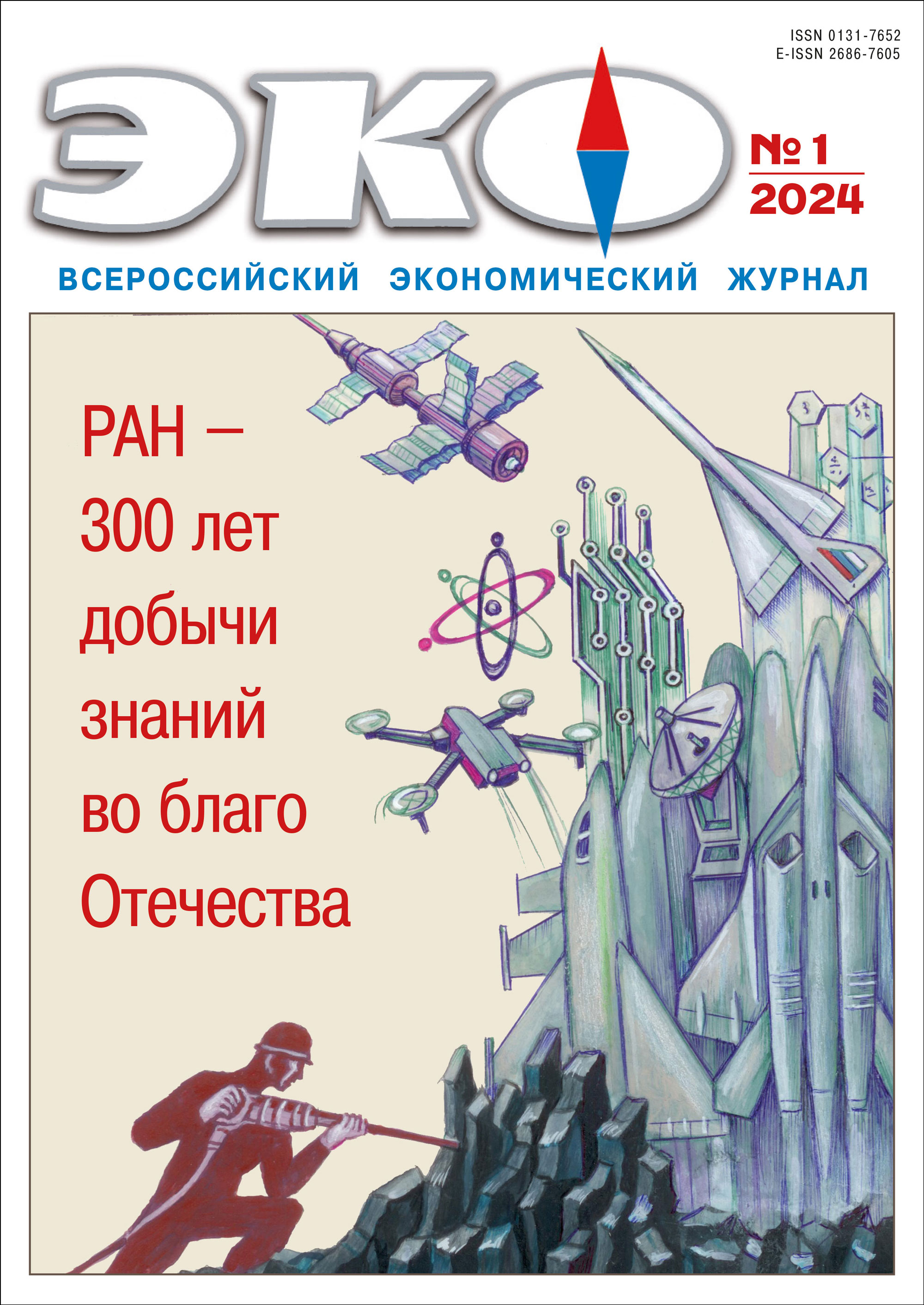MONITORING OF ECONOMIC TRANSFORMATION
Foreign Companies in the Russian Economy after the Start of the Special Military Operation
Published 2024-02-06
Keywords
- foreign companies in Russia; transnational corporations; TNCs; sanctions; sanctions policy; asset confiscation; consequences of the SMO; unemployment in Russia
How to Cite
1.
Egorov Д, Chaturova Д. Foreign Companies in the Russian Economy after the Start of the Special Military Operation. ECO [Internet]. 2024 Feb. 6 [cited 2026 Feb. 20];54(1):72-95. Available from: https://ecotrends.ru/index.php/eco/article/view/4705
Abstract
The authors endeavor to assess the scale and specifics of foreign companies’ withdrawal from the Russian market after the start of a special military operation. For this purpose, using the polychoric linkage indicator, the impact of quantitative indicators of Russian divisions of companies (size of assets and capital, number of employees, etc.) on decisions to leave or reduce operations was assessed. Examples of the impact of reputational risks on the activities of foreign firms in our country were considered, as well as the role of sanctions pressure on them. The activities of TNCs with different operating statuses in the Russian economy after the start of the SMO were analyzed. The response of the Russian government was identified as one of the factors making it difficult for a company to leave Russia and examined in more detail. An attempt has been made to assess the economic consequences of foreign companies’ departure.References
- Прокудина Е., Плешакова Е., Китаев А. Картина иностранного бизнеса: уйти нельзя остаться. 2022 [Эл. ресурс]. URL: https://www.csr.ru/upload/iblock/7d7/sftonnurobki28bulojpjq8bufmb7gd3.pdf (дата обращения: 24.04.2023).
- Balyuk, T., Fedyk, A. (2023). Divesting Under Pressure: U.S. Firms’ Exit in Response to Russia’s War Against Ukraine. Journal of Comparative Economics, Forthcoming. 37 p. DOI: 10.2139/ssrn.4097225
- Evenett, S., Pisani, N. (2023). Less than nine percent of western firms have divested from Russia. 16 p. DOI: 10.2139/ssrn.4322502
- Gonchar, K., Greve, M. (2022). The impact of political risk on FDI exit decisions. Economic Systems. Vol. 46. Is. 2. 23 p. DOI: 10.1016/j.ecosys.2022.100975
- Ivanova, P., Stognei, A. (2023). Western groups leaving Russia face obligatory donation to Moscow. Financial Times. Available at: https://www.ft.com/content/77368014–1397–4a08–901d-1f996e66d627 (accessed 26.06.2023).
- Mylovanov, T. et al. (2023). How to identify foreign business in Russia and what are the key issues of creating and keeping a full list of the largest foreign companies in Russia. 35 p. DOI: 10.2139/ssrn.4407284
- Onoprienko, A. et al. (2023). How the income of foreign businesses in the Russian federation has changed in 2022 and why so many companies still do not leave. 23 p. DOI: 10.2139/ssrn.4453963
- Sonnenfeld, J. et al. (2022). It pays for companies to leave Russia. 21 p. DOI: 10.2139/ssrn.4112885
- Sonnenfeld, J. et al. (2023). The Russian business retreat – how the ratings measured up one year later. 32 p. DOI: 10.2139/ssrn.4343547
- Tosun, O.K., Eshraghi, A. (2022). Corporate Decisions in Times of War: Evidence from the Russia-Ukraine Conflict. Finance Research Letters. Vol. 48. 7 p. DOI: 10.1016/j.frl.2022.102920

